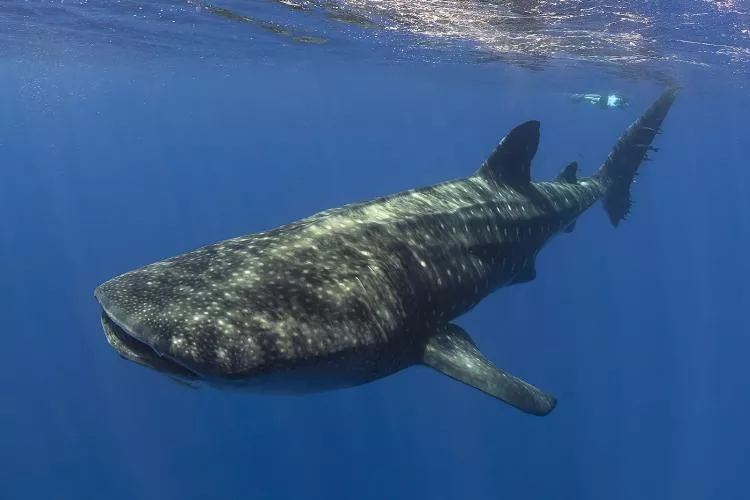Shipping poses substantial threat to whale sharks
According to new research conducted by marine biologists from the Marine Biological Association (MBA) and the University of Southampton, lethal collisions between whale sharks and large ships are greatly underestimated and may be the cause of declining populations.
As whale sharks assemble in coastal regions to spend substantial time in surface waters, experts theorised collisions with ships could be causing substantial whale shark deaths. Previously, there was no way of monitoring this threat.
Scientists from 50 international research institutions and universities tracked both whale shark and ship movements across the globe to pinpoint areas of risk and potential collisions. Satellite-tracked data from nearly 350 whale sharks was submitted to the Global Shark Movement Project, conducted by MBA researchers.
Shark hot spots
The team recorded shark “hot spots,” which overlapped global fleets of cargo, tanker, passenger and fishing vessels, all capable of striking and killing a whale shark. It was concluded over 90 percent of whale shark movements fell under the footprint of shipping activity. Whale shark tag transmissions ended more frequently in busy shipping lanes, even when technical failures were ruled out. The team concluded transmission loss was likely due to whale sharks being struck, killed and sinking to the ocean floor.
“Incredibly, some of the tags recording depth as well as location showed whale sharks moving into shipping lanes and then sinking slowly to the seafloor hundreds of metres below, which is the ‘smoking gun’ of a lethal ship strike,” said Professor David Sims, Senior Research Fellow at the MBA and University of Southampton and founder of the Global Shark Movement Project. “It is sad to think that many deaths of these incredible animals have occurred globally due to ships, without us even knowing to take preventative measures,” he added.
At present, no international regulations exist to protect whale sharks against ship collisions. The research team hopes their findings can inform management decisions and protect whale sharks from further population declines. Growing up to 20m in length, whale sharks feed on microscopic animals called zooplankton and play a crucial role in the marine food web and healthy ocean ecosystems.
“The maritime shipping industry that allows us to source a variety of everyday products from all over the world may be causing the decline of whale sharks, which are a hugely important species in our oceans,” said Freya Womersley, doctoral researcher, from the University of Southampton. “Collectively, we need to put time and energy into developing strategies to protect this endangered species from commercial shipping now, before it is too late, so that the largest fish on Earth can withstand threats that are predicted to intensify in future, such as changing ocean climates,” she added.


























